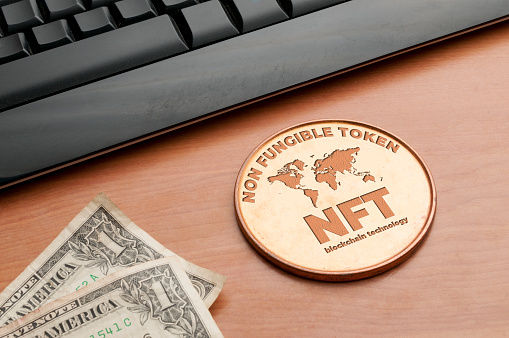- Polygon is soaring in terms of valuation and adoption, which made its founders India’s first cryptocurrency billionaire
- Maharashtra government seems exploring the blockchain network to maintain COVID-19 test reports
- The use of PoS consensus has made MATIC’s mining process green
- The Blockchain-based network helps an NFT platform to sell cheap Non-Fungible Tokens
- The founders of the network that rests on Ethereum wants to take the network below the flagship cryptocurrency
Polygon is a blockchain scalability network founded in India in 2017. The network was established by the name of Matic Network, which later changed. The network helps solve the problem of high fees and slow transactions on the Ethereum blockchain. Although the network rests on Ethereum, it allows its clients to create applications at a meagre cost compared to Ethereum. The growth in adoption and valuation of Matic, a native token of the blockchain, made its founders a billionaire. Indeed, Jaynti Kanani, Sandeep Nailwal, and Anurag Arjun have founded the network and are now the first crypto billionaires in India.
How Polygon made its founders billionaire?
The founders of Polygon introduced the Proof-of-Concept in 2017. Raising $150k from friends and family, the founders began the creation of the network in 2018. Nailwal states that the scenario wasn’t favourable when they introduced the ecosystem.
When MATIC was first introduced in 2019, its total market cap was approximately $26 million. At press time, the total valuation of the digital asset is over $14 billion. According to the data from CoinMarketCap, MATIC is currently in 15th position among the top 100 crypto assets.
The tremendous rise in the value of the cryptocurrency has tended to make its founders the first billionaire in the country. With the founders, there might be other Indian investors who generated gains via the network. However, it is a complex task to identify such investors as data in the cryptosphere is challenging to verify.
Maintenance of Covid-19 test results on a public blockchain
According to Nailwal, the government of Maharashtra, an Indian state, is planning to use a public chain to maintain COVID-19 test reports. To post the results of the mandatory test, the government might be exploring Polygon. According to Polygon’s team, such a step by the governing authorities could be a test project.

Simultaneously, Nailwal also revealed that few dealers working with the Maharashtra government are already using the blockchain.
Are Polygon’s mining operations eco-friendly?
Bitcoin uses the Proof-of-Work (PoW) consensus for mining activities, which uses higher power. To mine a block of the emerging asset class, the miners require more mining rigs to win the hash rate. Following the usage of energy, many have shown concerns globally. Recently, Elon Musk suspended the acceptance of BTC in exchange for Tesla products due to such concerns. Moreover, personalities like Bill Gates have also demonstrated climate change concerns.
We at https://t.co/VUydpLFzGh will continue to accept BTC/Eth/Doge because we know that replacing Gold as a store of value will help the environment https://t.co/bs7NvnJY8A and https://t.co/ELhbuLOBRV shrinking big bank and coin usage will benefit society and the environment https://t.co/zu08F0STEQ
— Mark Cuban (@mcuban) May 12, 2021
Polygon is based on the Proof-of-Stake (PoS) consensus, which also helps Ethereum impact the environment. PoS miners don’t need massive hash power, so it is considered as green. Ultimately, the consensus helps reduce the consumption of energy by approximately 99%. Hence, the consensus-based blockchains remain green for the environment.

Polygon’s PoS consensus protects it from 51% attacks
If someone has more than 51% mining power, can possibly take over a PoW based network. However, in such a situation, the other 49% of miners on the network can reject the false blocks and fork a new chain. However, to have more than 51% mining power is decisive in the ecosystem.
On the other hand, PoS based networks require more than 66% of mining power to gain control of the network. Which itself makes the task decisive, for which the hacker needs about 1.8 billion cryptocurrencies of Polygon. Even after someone takes control, the community can reject the false block. Hence, the entire scenario assures that blockchain is safeguarded. And such screening algorithms are significant socio-economic incentives that help manage the blockchain.
Mark Cuban is the prominent backer of Polygon
A couple of days ago, Mark Cuban, a millionaire investor and Dallas Mavericks owner, the National Basketball Association’s team, invested in Polygon. However, the exact sum is yet to be disclosed. He announced his support on Twitter for accepting cryptocurrencies as payments on a longer-term basis.
The US tech billionaire and serial startup investor are one of the prominent backers of blockchains and cryptocurrencies. Moreover, the billionaire has invested in more than ten blockchain startups globally. Before being a prominent backer of Polygon, Cuban primarily used to back Ethereum and Dogecoin.
Polygon’s gas fees help sell lower-priced NFTs
Lazy.com is a Non-Fungible Token (NFT) platform of Mark Cuban. The NFT platform is taking help from Polygon to onboard entities. The minimum size required for NFTs needs to be something approximately $500 currently. Such measure will ultimately help the buyers to afford $50 as gas fees. However, such fees on Polygon’s network are a fraction of a cent. Ultimately, the blockchain network helps the NTF platform to sell NFTs at lower prices.

BigQuery offers insights into the network
Polygon network has been integrated on Google’s BigQuery, which enables developers to allow on-chain data analysis. The integration also includes gas monitoring, smart contracts monitoring, and determining popular tokens on the network.
According to the network’s founders, gaining insights from the six million-plus daily transaction will help take the blockchain towards more growth.
Can MATIC take over the position of ETH?
Indian software engineer Kanani, Nailwal, and Arjun have founded Polygon. Their efforts helped the blockchain soar and made them billionaires. After the creation of the network, Mihailo Bjelic from Serbia came on board as the co-founder.
The team behind the network aims to surpass Ethereum’s dominance. According to Nailwal, the project doesn’t really need money, and its investments are going forward. Moreover, such investment will remain strategic in nature, as the individuals joining in future will bring immense value.


 Home
Home News
News










